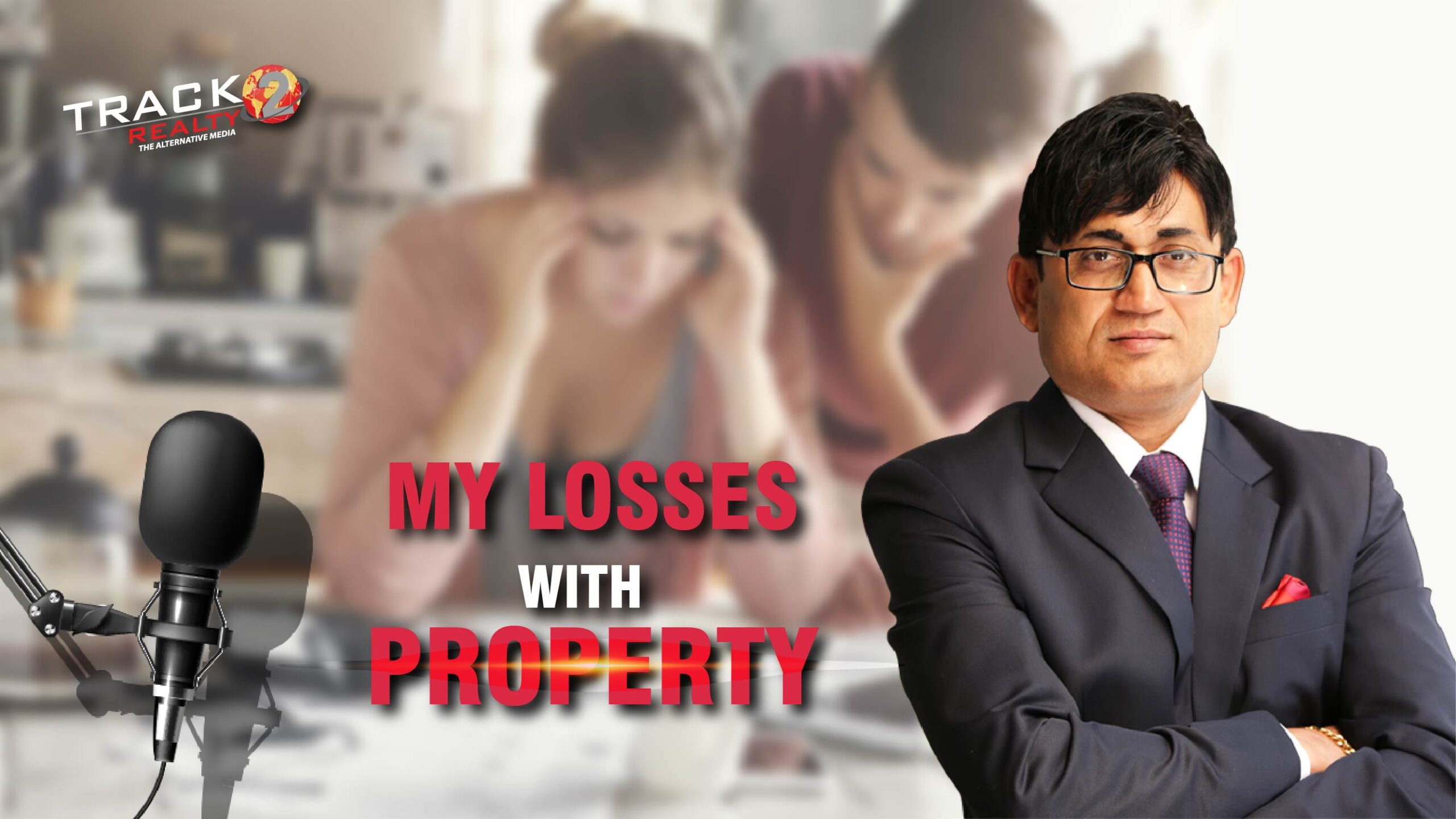Call it influence peddling of the real estate stakeholders, or a thought-process that is culturally ingrained in the minds of the Indians, but the collective consciousness is made to believe that real estate investments are insulated against losses. Track2Realty questions the rationale.
Real estate as an asset class has been oversold with the promise that you can never suffer losses with a physical asset, unlike stocks and mutual funds where an investor can suffer huge losses. To top it all, there is a general belief that real estate offers the best Return on Investment (ROI).
A bullish real estate cycle every now and then is often cited as the empirical evidence. But real estate in the long-term has hardly given better returns than any other investment products. This is even more true for the vast majority of apartment buyers, even if one discounts the depreciation factor.
But wait! If you don’t subscribe that it offers the best ROI, then you would be impressed to bet for safety. It is true that the market crash or wrong selection of stocks and mutual funds can erode wealth completely.
And hence, generation wise possession of physical assets has been encouraged, including gold & real estate. But the age-old wisdom was true in the good old age only; when property meant landed property, and gold didn’t have as much risk of being stolen. The financial assets at that point of time were all about Bank Fixed Deposits (FDs) or National Saving Certificates (NSCs).
But it is imperative to note here that during those good old days, the FDs/NSCs were giving returns in the range of 13.5-14 per cent. In the early ‘90s, bank interest rates were in the range of 14 to 18 per cent.
In the late 80s, advertisements from nationalized banks saying money doubles in 5 years; 4.5 years were reasonably common. It is only after 1998 did the interest rate of below 10 per cent became Indian reality.So, even during those days, property was not offering the best ROI. Now coming to the risk profile, real estate being less volatile doesn’t mean less risky.
Had there been a zero per cent chance of loss, then everybody would have been investing in real estate only. And yet people still come out with expressions like “you can’t lose with property.”
Ask someone having invested in the Lavasa project in India, and you would come to know how property investment could change the fortunes for all the wrong reasons.
Here are a few realistic scenario where real estate investment can also get into losses.
Risk #1: What if the builder defaulted. No! RERA is not a guarantee that builder the won’t default. We don’t have a legal framework where the preventive mechanism checks such defaults.
Risk #2: What if the project is delayed. Even if NCLT coming into the picture, if a project is delayed for a few years, your ROI is lower than inflation, and hence a loss-making proposition.
Risk #3: What if you didn’t get the project delivered. What about project not being cash positive to be completed even after court intervention?
Risk #4: What if the project has inherent flaws that result in no appreciation or lesser appreciation than inflation. It could also lead to faster depreciation due to the project’s poor quality. The myth of long holding also fails in such a case.
Risk # 5: There are also interest rate risks and interest rates can go up anytime during the course of long tenure of EMI settlement. In such a scenario, ROI is lesser than the amount paid.
Risk #6. What if a buyer is forced into distress exit; it is no different than any other financial asset. If with a financial product, the market could be in a down cycle, so is with real estate. Add to it, the developer’s arbitrary demands, like exit penalty or transfer charges, and one suffers huge losses.
Risk #7: If the investment is for the purpose of rental returns, an unoccupied building with no tenant is a risk to consider. Add to it, issues with tenants (such as non-payment of rent, property damage, or vacancies) can reduce income and profitability.
Risk #8: If it is a landed property, then the title claims or illegal encroachment could also pose a threat to the investment.
Risk #9: Now with the removal of LTCG benefits, taxation is also a risk. Add to it, any future taxation risk could be a reality as well.
So, with all these critical factors into play, real estate could also lead to losses, if one calculates the opportunity cost of money.
Real estate returns have to be calculated both in terms of inflation-adjusted as well as the borrowing cost-adjusted. The advocates of real estate investment only talk about absolute returns, which appears to be mouth-watering.
So, a property that doubles its value in 10 years may appear to be an attractive investment, but has actually given a CAGR return of only 7.2 per cent. Empirical evidence from the 2000 dot com bubble burst to 2008 Lehman crisis, suggests real estate could chain you for years if you wish to cut the losses.
With real estate, only risk insulation is for the builders and the banks; not for the buyers.
Ravi Sinha
X : RaviTrack2Media
Ravi Sinha is a journalist with over two decades of cross-discipline media exposure. He is the CEO of real estate thinktank group Track2Realty. He has been writing extensively on the real estate sector for more than a decade now. Evaluation of real estate brand performance is his core domain expertise and he has immense insight into consumers’ psychograph. He has conceptualised Track2Realty BrandXReport as India’s 1st & only objective & non-paid brand rating journal that is industry-accepted benchmark of brand equity & ranking of the Indian real estate companies.
Track2Realty is an independent media group managed by a consortium of journalists. Starting as the first e-newspaper in the Indian real estate sector in 2011, the group has today evolved as a think-tank on the sector with specialized research reports and rating & ranking. We are editorially independent and free from commercial bias and/or influenced by investors or shareholders. Our editorial team has no clash of interest in practicing high quality journalism that is free, frank & fearless.
Subscribe our YouTube Channel @ https://bit.ly/2tDugGl





